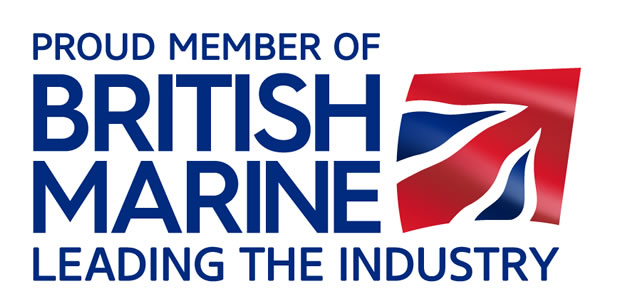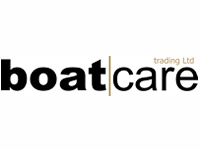British Ship Registration – do I or don’t I register?
BRITISH SHIPS REGISTER
If you are thinking about putting your yacht or motorboat on the British Ships Part I or Part III Register or have purchased a vessel that is currently on the British Ships Registry and need advice then contact us as we are able to assist.
Network Yacht Brokers Kent has the knowledge and expertise to assist with both new British Ships Part 1 and Part III Registrations. We can also assist and advise on change of ownership, change of a vessels name or change of its home port registration. We check your title documents to ensure they meet the British Ships Registry requirements. Our panel of qualified marine surveyors that can undertake the necessary tonnage surveyor for new Part 1 registrations or renewal where registration has expired. We undertake the preparation all of the appropriate application forms and process your application from start to finish.
A number of large marine lawyers offer this service, but we can undertake your registration at a fraction of the cost that marine lawyers charge. Want to find out more. then give Peter a call on 01634 571605 or email info@nybkent.com
HISTORY:
Under Merchant Shipping Law, the concept of ownership is inextricably linked with the requirement of registration. Also, registration confers a flag state on a boat. The importance of this came about because merchant ships are large, mobile and often valuable and their use involves potentially massive liabilities to others. It was therefore internationally recognised that they should each have a national identity or flag state, so that rights and obligations could be identified and regulated. The notion of a ‘British ship’ extends, by definition in the Merchant Shipping Act, to any British boat of any size, even down to a small sailing dinghy. By registering your boat you are then bound by your flag state’s rules and regulations.
DO I NEED TO REGISTER:
Whilst a boat stays in UK territorial waters there is currently no compulsory requirement for it to be registered. The 1982 United Nations Convention on the Law of the Sea (‘UNCLOS’) provides a framework for the use of the oceans. Under UNCLOS the freedom of the high seas is open to all states, rather than to individuals, and thus every state has the right to sail ships flying its flag on the high seas. In order to enjoy the freedom of the high seas, a boat must be granted the nationality of a signatory state to UNCLOS.
The Merchant Shipping Act 1995 specifies which boats are British and therefore entitled to fly the British flag. Unregistered small ships (of less than 24 metres length) are entitled to fly the British flag if they are owned by qualifying owners (i.e. individuals or companies that would be entitled to register a British boat).
However, when a British boat leaves UK territorial waters and wishes to exercise the freedom of the high seas, it might be called upon by the warships or police of any nation to demonstrate its right to fly the British flag and, for all practical purposes, this means that the boat needs to be registered and to carry onboard the appropriate certificate.
A boat’s registration normally comes from either the nationality of the owner or the country of residency of the owner and once a boat is registered she becomes a floating part of her flag, state. As a result the vessel has to comply with the national requirements regarding training, safety equipment etc.
IS IT COMPULSORY TO REGISTER
In the UK we do not have compulsory training or minimum safety requirements on private pleasure boats. However, if an unregistered boat goes abroad, and local Customs realise that the boat is not registered then the owner may be fined, or it may be inferred, if the owner has been in the country long enough, that the boat comes under the jurisdiction of that country and the owner should, therefore, sit all the relevant training exams, in the local language, and fit the boat out according to the local safety standard.
UK REGISTER:
The register of British Shipping is divided into four parts.
Part I is the traditional Register of British Ships, which originated in the sixteenth century. By the end of the nineteenth century, each of the 110 significant ports in the UK had its own register. By 1986 the administration of the register was drawn into 17 regional centres and by 1994 the entire operation was centralised at the office of the Registrar General of Shipping in Cardiff.
Part II is the Register of Fishing Vessels.
Part III is the Small Ships Register (SSR) which was originally set up under the 1983 Merchant Shipping Act in response to the demand for a cheap and simple means of registering a boat to sail abroad. From 1983 to 1991 the SSR was managed by the RYA, from 1991 to 1996 by the DVLA at Swansea and since 1996 by the Registrar General at Cardiff.
Part IV was created by the 1993 Merchant Shipping Act to enable foreign-owned ships used as bare-boat charters by British companies to be British registered and fly the British flag for the duration of the charter.
British pleasure boats are eligible to register on either Part I or on Part III (SSR). A boat may only be on one Register at a time, regardless of whether it is on the British Register or under foreign registration.
WHAT IS THE DIFFERENCE BETWEEN THE PART I AND THE PART III (SSR):
The main differences between the two registers are the eligibility requirements and the proof needed to register. Part I of the Register is more of a title register of ownership, which can also record details of any mortgages on the boat, whereas the SSR is more of a passport for your boat to enable you to go overseas.




